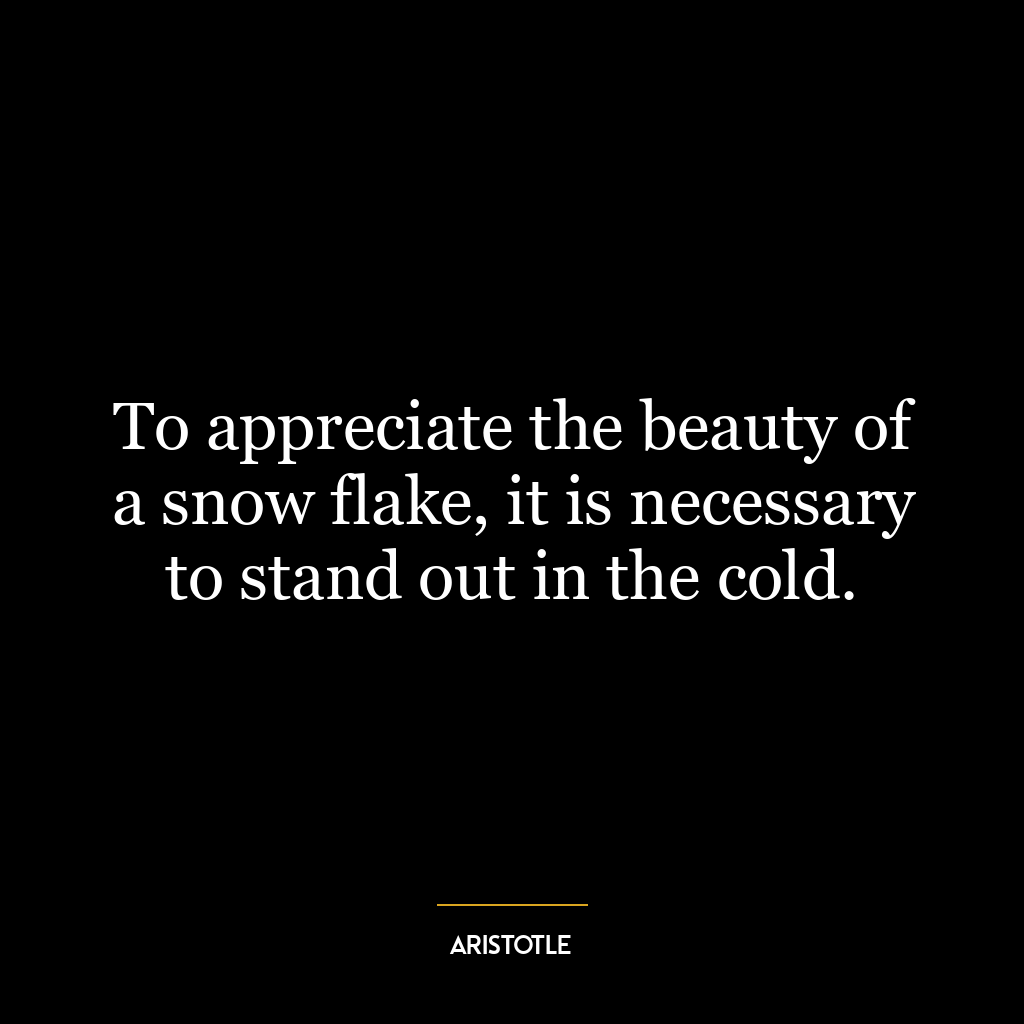This quote, “To appreciate the beauty of a snow flake, it is necessary to stand out in the cold,” is a metaphor highlighting the importance of experiencing discomfort or hardship in order to truly appreciate and understand the beauty or value of something.
The snowflake represents something beautiful, unique, or valuable. Its beauty is undeniable, but it can only be fully appreciated in the context of its environment – the cold. The cold, in this case, symbolizes discomfort, challenges, or sacrifices. Just as one must endure the cold to appreciate the snowflake’s beauty, one must often go through difficult times to truly appreciate and understand life’s most valuable aspects.
Applying this idea to today’s world or personal development, it suggests that to truly appreciate success, achievement, or even happiness, one must endure the hardship, struggle, or failure that often precedes these states. It’s through these challenging experiences that we gain a deeper understanding and appreciation of our accomplishments and the good times in our lives.
For instance, an athlete must endure rigorous training and potential failures to truly appreciate the beauty of victory. Similarly, one must experience heartbreak to truly value love, or struggle with complex problems to appreciate the beauty of knowledge and learning. This philosophy encourages resilience, perseverance, and a deeper understanding of the world around us.
In terms of personal development, this quote suggests that growth often comes from discomfort. By stepping out of our comfort zones and facing challenges head-on, we not only learn more about the world but also about ourselves, our strengths, and our capabilities. This insight is invaluable in fostering personal growth and development.
In conclusion, this quote is a reminder that life’s most beautiful and valuable aspects often come hand-in-hand with challenges and discomfort. It encourages us to embrace these challenging experiences, as they enable us to fully appreciate and understand the beauty in our lives.















